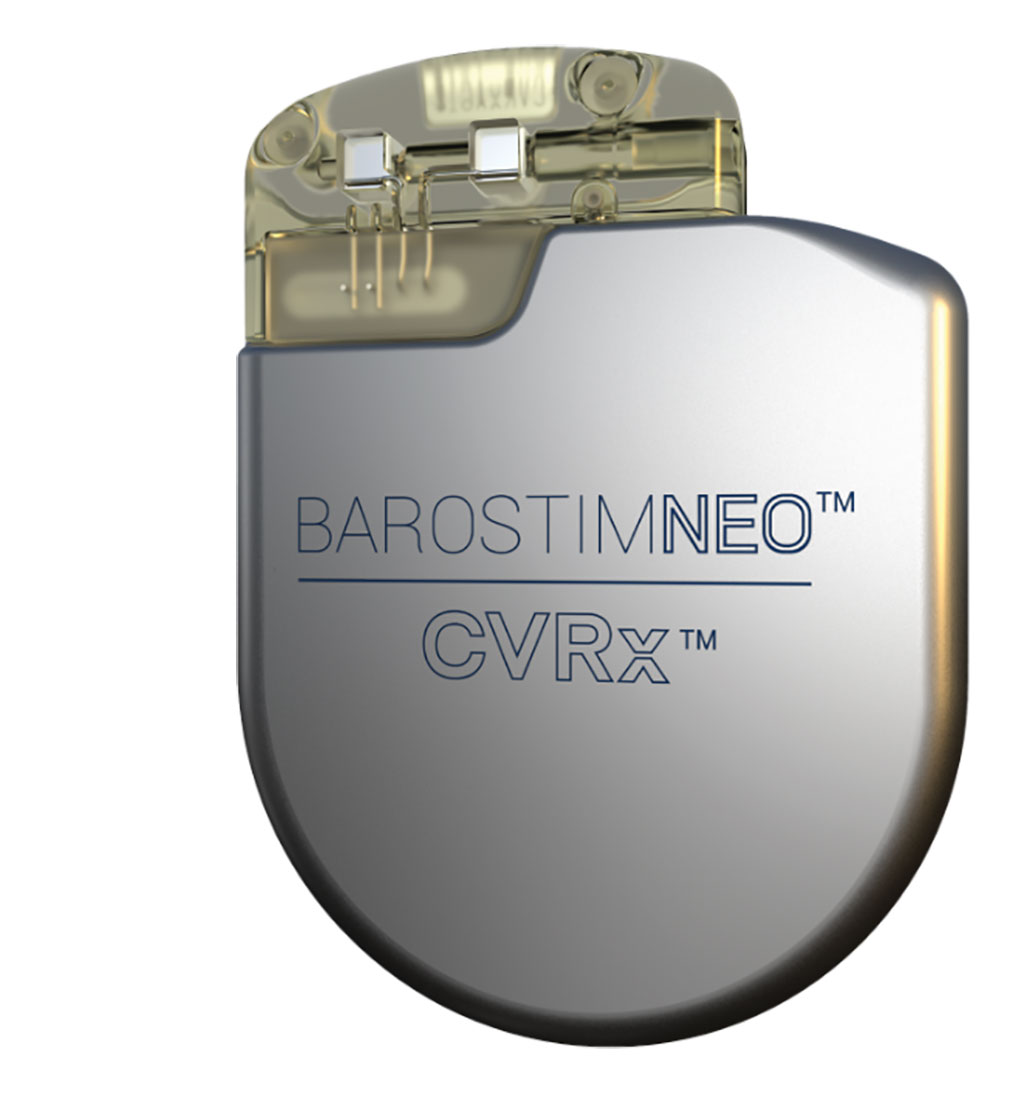MR Imaging Safe for Patients Implanted With Autonomic Heart-Stimulation Device
Posted on 12 May 2022
Heart failure is a chronic, progressive condition in which the heart muscle is unable to pump enough blood to meet the body’s needs for blood and oxygen. The world’s first FDA-approved neuromodulation device to treat the symptoms of heart failure has now received U.S. Food and Drug Administration (FDA) approval for magnetic resonance (MR) conditional labeling.
CVRx (Minneapolis, MN, USA) has received US FDA approval for MR conditional labeling for its Barostim System which now includes instructions to allow for safe MRI scans of the head and lower extremities. Barostim is an implantable device that delivers electrical pulses to baroreceptors – natural sensors in the body that tell the nervous system how to regulate heart, kidney and vascular function. Baroreceptors activate the body’s baroreflex, which in turn triggers an autonomic response to the heart. These effects reduce the heart’s workload and help it pump more efficiently, helping to improve the symptoms for patients with heart failure.

Unlike pacemakers, ICDs, and CRT devices, Barostim does not sense and respond to electrical activity. For this reason, and the presence of a magnetic switch that automatically pauses therapy during an MRI scan, Barostim requires no pre- or post- MRI scan programming (newest models only). All Barostim System patients, including those already receiving Barostim therapy, can safely receive an MRI at 1.5T when conditions of use are met.
"This is a significant milestone for CVRx, and more importantly, for the heart failure patients benefitting from our therapy," said Nadim Yared, President and CEO of CVRx. "These heart failure patients undergo many physical assessments. This approval expands the diagnostic imaging options available to physicians for these patients, should the need arise."
Related Links:
CVRx














